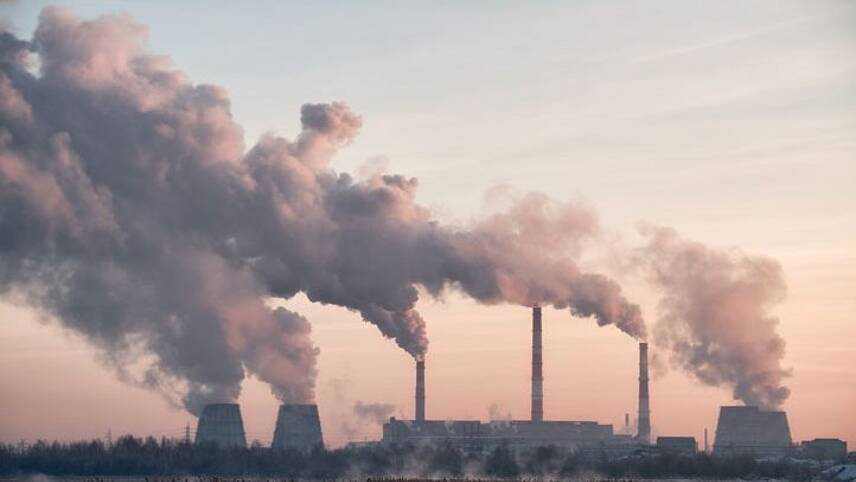Register for free and continue reading
Join our growing army of changemakers and get unlimited access to our premium content

70% of UK manufacturers believe that any UK carbon boarder measure should be aligned with the EU’s CBAM
A new study published today (8 June) in the journal Science ranked the net-zero emissions targets of every country with more than 0.1% of current global greenhouse gas emissions. Targets from nations were assigned a confidence score based on whether policies were legally binding, had implementation plans in place and had short-term methods to help drive decarbonisation.
The results found that more than 90% of global net-zero pledges from nations are considered “low confidence”, meaning they are unlikely to be delivered in full or on time.
Nations have submitted net-zero pledges as part of Nationally Determined Contributions (NDCs) to the Paris Agreement. But by the UN’s own reckoning, current NDCs by nations and states would put the world on course for a 2.5C temperature increase between pre-industrial times and 2100, even if implemented fully and on time.
While the likes of the European Union and New Zealand scored highly, many major emitting nations such as the US and China scored on the lower end of the confidence spectrum. Despite the UK’s net-zero strategy being deemed unlawful, the nation actually scored highly, largely due to the fact that it is a legally binding target.
In total, only 12 out of 35 major net-zero policies analysed are legally binding.
In response, the researchers are calling on nations to make climate targets legally binding while supporting them with long and short-term action plans and policies ahead of COP28 in the UAE later this year.
Worryingly, the UAE finished near the bottom of the scale of ranked targets. Researchers noted that the target is not currently legally binding and there are no public plans or near-term emissions reductions in place.
Lead researcher Professor Joeri Rogelj, director of research for the Grantham Institute at Imperial, said: “Climate policy is moving from setting ambitious targets to implementing them. However, our analysis shows most countries do not provide high confidence that they will deliver on their commitments. The world is still on a high-risk climate track, and we are far from delivering a safe climate future.”
The research team was global in scope, including representatives from Imperial College London (UK) the International Institute for Applied Systems Analysis (Austria), the World Resources Institute (US), the University of California–Berkeley (US), the Netherlands Environmental Assessment Agency, the Institute for Environmental Studies (Netherlands), the NewClimate Institute (Germany), the Copernicus Institute of Sustainable Development (Netherlands), and the Universidade Federal do Rio de Janeiro (Brazil).
Carbon budget halved
In 2021, the UNFCC warned that global annual emissions would be 13.7% higher in 2030 than in 2010. It projected a continued increase in emissions beyond 2030. The body now believes that emissions will likely peak in or before 2030, with most parties having strengthened their NDCs over the past 12 months.
However, a group of 50 leading scientists has warned that human-caused cases of global warming are increasing at an “unprecedented rate”.
Noting that significant climate updates from the likes of the Intergovernmental Panel on Climate Change (IPCC) – which published its final major update on its current reporting cycle earlier this year – tend to publish research every two years, the scientists have created an open data platform to provide more frequent updates.
The Indicators of Global Climate Change found that human-caused warming reached an average of 1.14C for the most recent decade (2013 to 2022) above pre-industrial levels. This is an increase on the 1.07C recorded between 2010 and 2019.
Led by the University of Leeds with researchers from around the world, including Maynooth University ICARUS Director, researchers warn that human-induced warming is now increasing at a pace of more than 0.2C per decade.
This is because of record levels of greenhouse gas emissions being emitted annually – equating to 54 billion tonnes of carbon dioxide. The research warns that this increase now means that the world’s remaining carbon budget – which is how much could still be emitted to have a better than 50% chance of holding global warming to 1.5C – has been reduced by 50% over a three-year period.
Professor Peter Thorne, Director of ICARUS Climate Research Centre at Maynooth University, said: “It is critical that policymakers and the general public be made aware of how quickly we are changing the climate through our collective activities.
“Already since the IPCC assessment of the physical science basis in 2021, key numbers have changed markedly and we remain well off track globally to avert warming above 1.5C.”


Please login or Register to leave a comment.